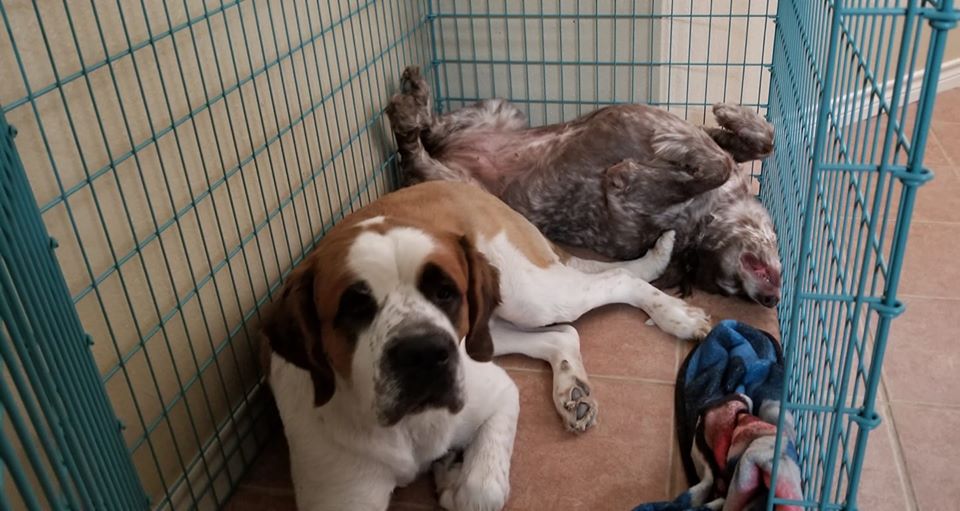Dog Vaccination
Guard your companion from life-threatening illnesses through regular vaccinations. We’ll create a custom schedule for your pet’s immediate health situation.
Vaccinations and Pet Safety
Similar to humans, pets are apt to experience mild side effects for up to 24 hours after vaccinations, including lethargy and slight soreness at the vaccination site. However, in our medical opinion, these minor and temporary side effects are worth the protection against disease—and your peace of mind as a pet owner! If you have any questions or concerns about how your pet will respond to vaccinations, we are here to provide support and answers.
While every pet should be vaccinated, we recommend only what’s truly necessary for your dog long-term health. Here are the vaccines we can provide at our veterinary clinic:
- Rabies
- Distemper
- Parvovirus
- Parainfluenza
- Adenovirus
- Bordetella (Kennel Cough)
- Leptospirosis
CANINE DISEASES AND SIGNS
(Information gathered from the American Veterinary Medical Association, AVMA)
———————
Canine Distemper
Vaccination against this often-fatal, hard-to-treat disease is absolutely essential. Highly contagious, it is spread by discharge from the nose and eyes of infected dogs. Signs can include listlessness, fever, coughing, diarrhea, and vomiting; convulsions and paralysis may occur in the disease’s final stages. The distemper virus attacks many organs, including the nervous system, which may be permanently
damaged even if the dog recovers.
Canine Parvovirus
Very contagious, debilitating, and widespread, the disease caused by this virus emerged in many parts of the world in 1978. Spread through infected feces, the highly resistant virus can remain in the environment for many years. Signs are most severe in young pups and include high fever, listlessness, vomiting, and diarrhea. Vaccination is the best means of preventing this potentially fatal disease.
Rabies
This incurable viral disease affects the central nervous system of almost all mammals, including humans. It is spread through contact with the saliva of infected animals (such as skunks, foxes, raccoons, and bats) through bites or any break in the skin. Vaccination will provide your dog with a much greater resistance to rabies if it is exposed to the disease. You should be aware that there is no cure once it occurs. For this reason, many municipalities require that all dogs receive rabies vaccinations on a regular basis. Plus, you will definitely have to provide vaccination records if you want to travel with your dog across the country or around the world.
Canine Tracheobronchitis (Canine Cough)
A highly contagious infectious disease of the upper respiratory tract of the dog, canine cough is spread through coughing and sneezing. Bordetella bacteria commonly cause canine cough, which is why boarding facilities require vaccination against it. Canine cough can also be caused by respiratory viruses, such as canine parainfluenza virus and canine adenovirus type 2. Your dog can catch the disease simply by being in close proximity to an infected dog.
Other Vaccinations
After evaluating your dog’s particular situation and risk factors, your veterinarian may also recommend vaccination against other infectious diseases. These may include:
LEPTOSPIROSIS is an infectious disease that attacks the kidneys and liver and is caused by bacteria that live in standing water. Dogs can get leptospirosis by swimming or playing in water contaminated with urine from infected animals.
VACCINATIONS: WHY & WHEN
The immunity that a puppy acquires at birth is temporary and begins to diminish sometime between 6 and 12 weeks. Initial vaccination usually occurs at 6 weeks of age and is repeated every 2–4 weeks until the puppy is between 3–4 months old. Thereafter, your dog will require repeat vaccinations at regular intervals for the rest of his or her life. Otherwise, your dog may not be protected. Above all, follow the vaccination schedule recommended by your veterinarian.
Vaccines contain small quantities of altered or “killed” viruses, bacteria, or other disease-causing organisms that stimulate your dog’s immune system to produce antibodies.
Veterinarians agree that your pet should be protected against those diseases that are most common, highly contagious, and cause serious illness. These diseases could include canine distemper, infectious canine hepatitis, canine parvovirus, and rabies. Other vaccinations may be recommended, based on your veterinarian’s evaluation of the risks posed by such factors as your dog’s particular environment and lifestyle.
Like any medical procedure, there is a small chance of side effects with vaccination. Common side effects are mild and include soreness or swelling at the injection site, fever, or decreased appetite. Rare side effects such as allergic reactions may occur within hours. If this happens, call your veterinarian immediately. The risks of side effects are much smaller than the risks posed by the disease. And vaccination is more convenient when you consider the costs of treating a serious illness in terms of money and distress.



